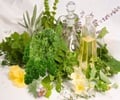The common belief that medicinal formulations based on alternative and complementary medicine are tested before they can be approved for use has been accounted for misuse of these products by Australian citizens .More than 50% of the Australian population have been using alternative medicines in some form or the other, according to a study conducted recently.
"This is in contrast to increasing reports of adverse effects from complementary and alternative medicines (CAMs) and other problems seen predominantly overseas, such as contamination, adulteration, substitution, variable dosage, dubious quality control and inappropriate labelling. Doctors need to directly ask about the use of CAMs in a non-judgmental manner to better ascertain the risks of drug interactions and potential side effects," the researchers wrote in the Medical Journal of Australia (MJA).Herbal remedies, chinese medicinal preparartions and aromatherapy are used by more than 52.2% of the population, based on a survey conducted in 2004. Out of this, nearly 48.8% had wongly assumed that such products were independently tested by a concern such as the Therapeutic Goods Administration (TGA).
To much shock and concern, several individuals took both complementary and alternative medicine preparations at the same time (even the same day). More than half of these individuals (53.2%) had not informed their physicians regarding use of alternative medicines. This could lead to complex drug interactions and severe drug related adverse effects.
Women with post-secondary education, aged between 25 and 44 years of age were found to use these forms of medicines more when compared to any other group. Furthermore, this group had a household income greater than $30,000 a year and lived in the metropolitan area.
Self prescribed vitamins were amongst the products utilised frequently. It was closely followed by herbal medicines. One reason behind the observation could be due to insufficient audit of alternative treatment options by the TGA before marketing. A majority of the products were classified L on the Australian Register of Therapeutic Goods, meaning that a specific product can be taken to be safe, without any further testing or audit.
This is however not the case with conventional medicines; these have to be tested for safety, efficacy and quality before it can be approved for commercial use. Drug preparations registered this way are classified R. The only solution to this unapproved, widespead use of alternative medicines is a strict enforcement of regulations related to the use of complementary medicines atleast in the near future.
Advertisement










